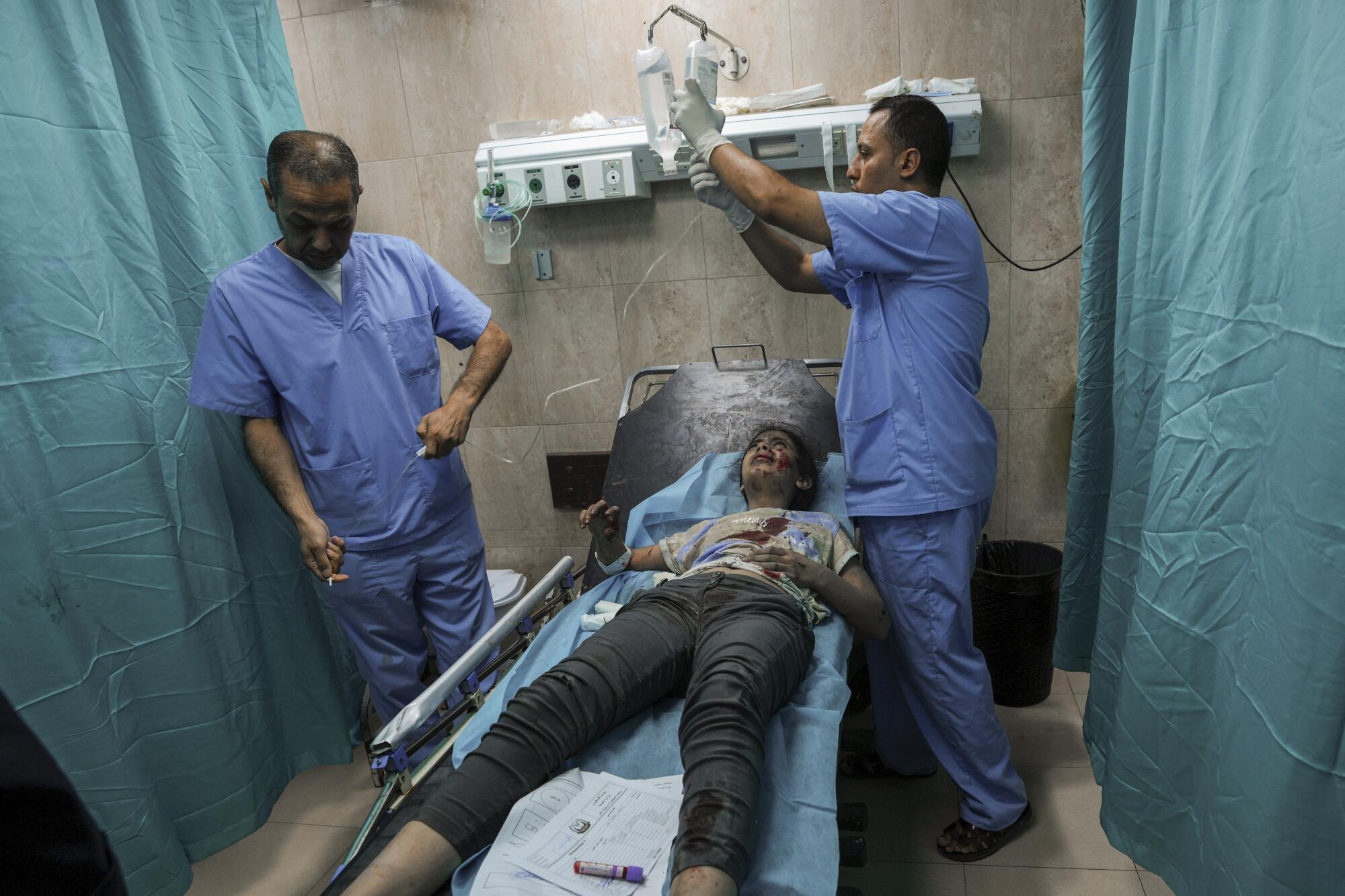
- Share via
GAZA CITY — It had been more than a week of unceasing work for Suheila Tarazi and the other doctors at Gaza City’s Ahli Arab hospital.
The 70 beds were full and still people kept coming — and not just the wounded. Families crowded around the medical center, hoping it would offer some protection against Israel’s bombing campaign in the Gaza Strip.
“When I came Tuesday morning, there were 2,000 people in the courtyard outside,” said Tarazi, the hospital director. After she left for the night, the staff told her, 700 more or so arrived to spend the night. “We had a massive number of people.”
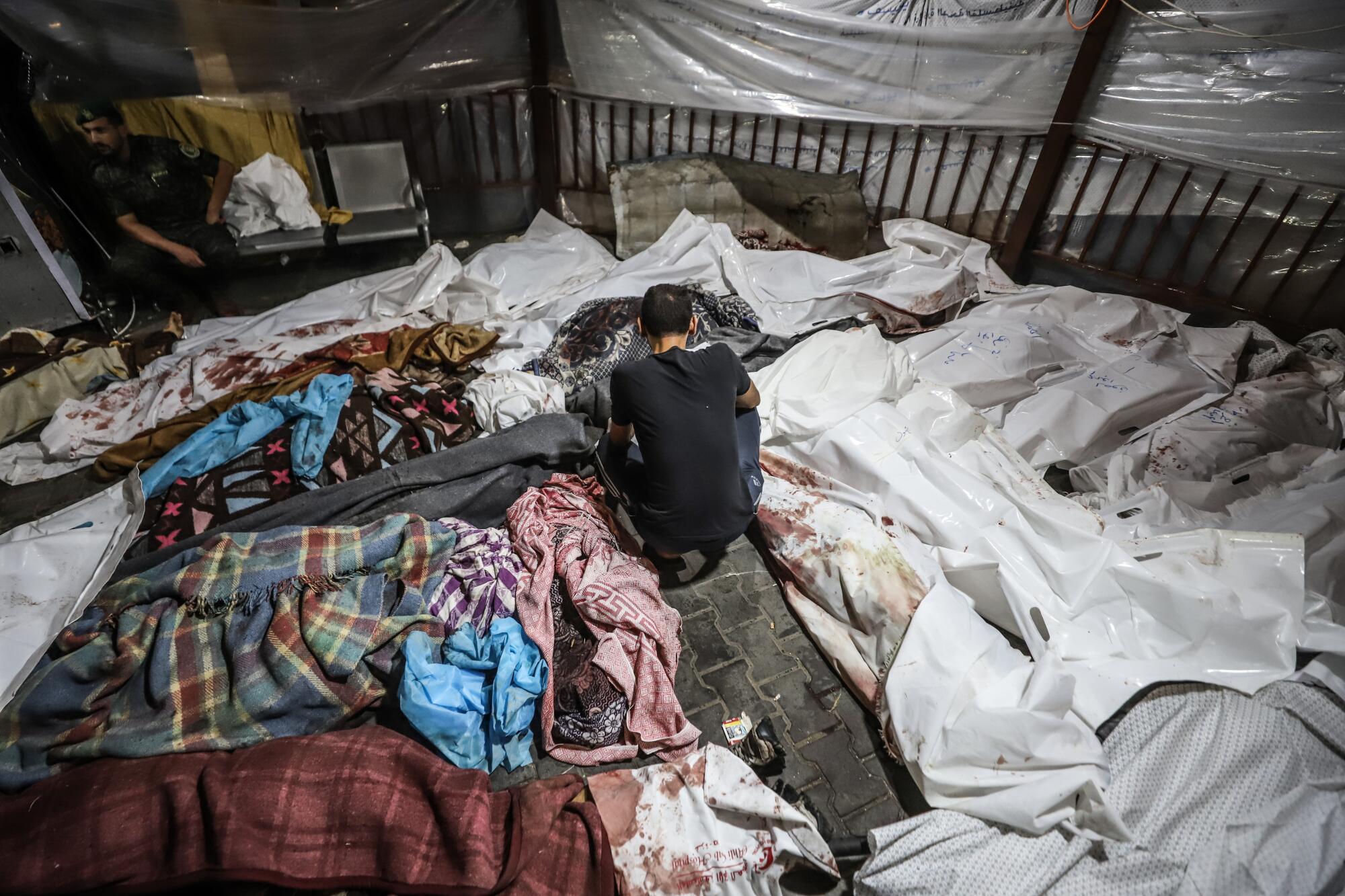
Hours later, a huge explosion rocked the hospital, a blast that Gaza health authorities said killed hundreds.
When Tarazi returned the next day, the courtyard was transformed — littered with burned vehicles, shattered glass, mattresses, books, bread and blood.
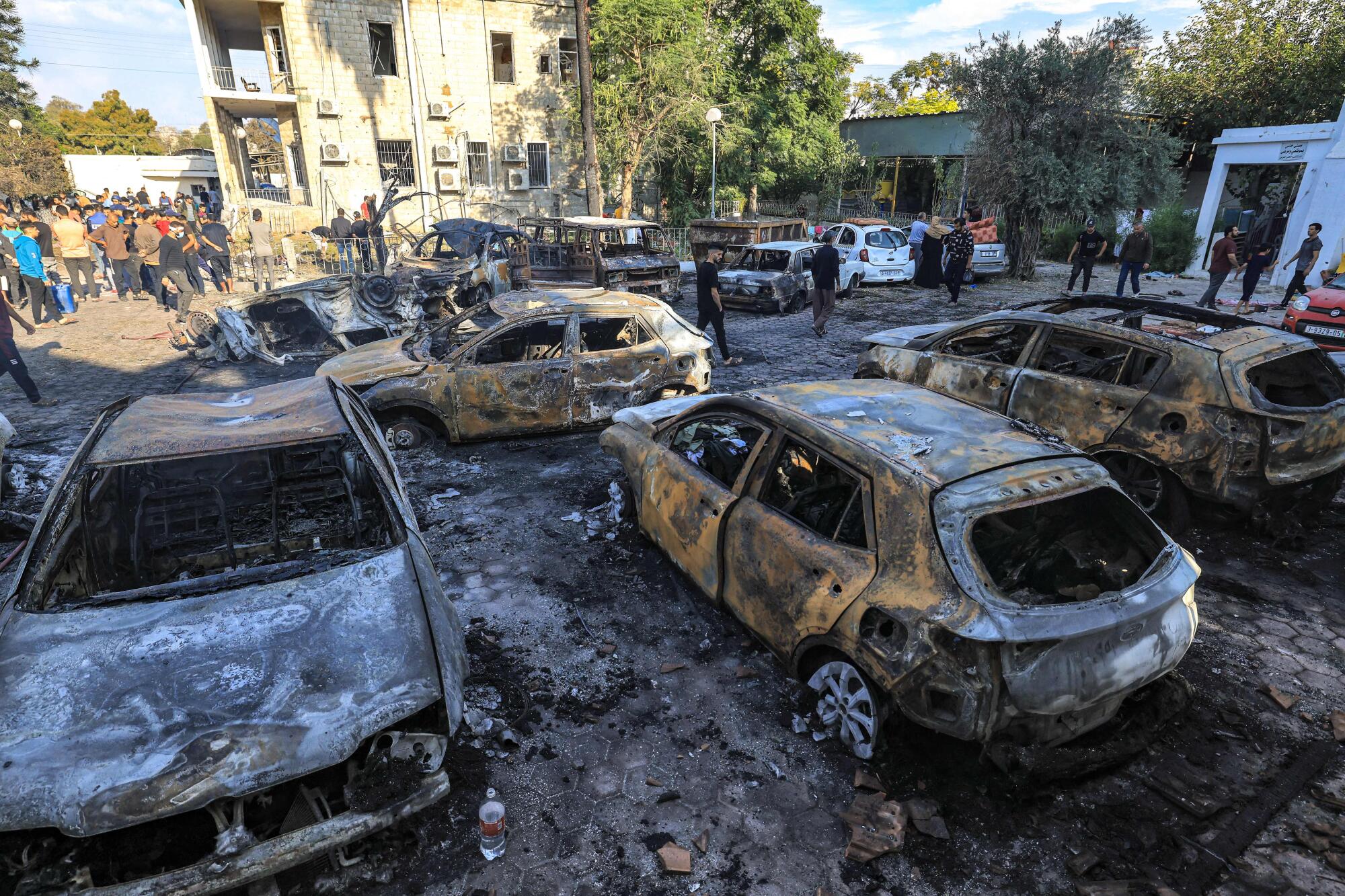
“All those people, they came to the church and the hospital because it’s a safe place,” she said Thursday. “Unfortunately that’s gone, and we’ve lost lives of kids, and they have no fault other than to want a safe place to sleep.”
Who is to blame for the carnage has quickly become one of the most contentious issues in the war that began Oct. 7 when Hamas fighters crossed into Israel and killed 1,400 people, most of them civilians.
Palestinian groups in Gaza say an Israeli airstrike caused the blast at the hospital. Israel says it was an errant rocket from Islamic Jihad, Islamic Jihad, a Palestinian militant group allied with Hamas. The United States has backed Israel’s contention, with President Biden saying in Tel Aviv this week that “the other team” was responsible. Now even the death toll of the blast is in dispute.
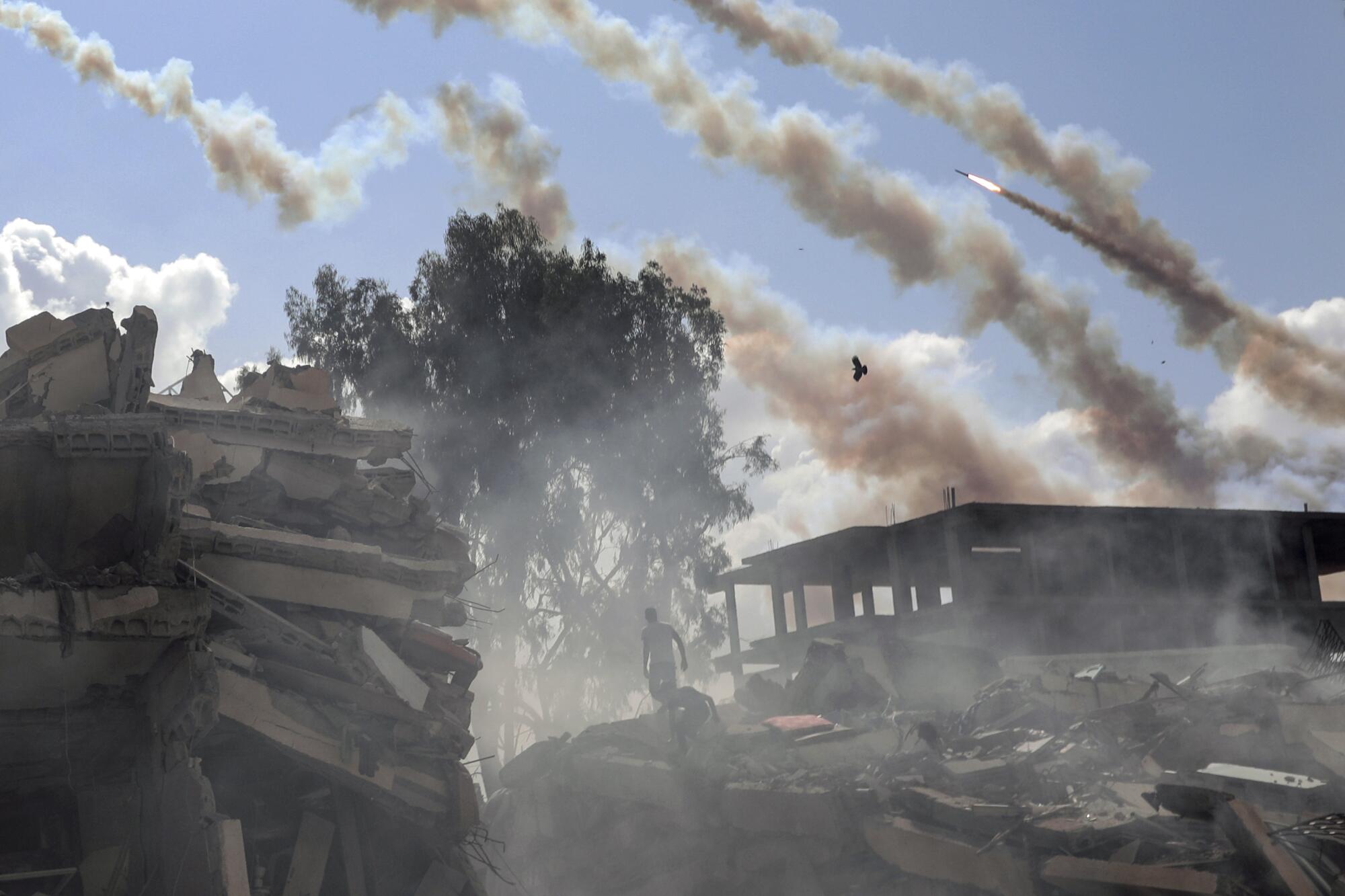
As both sides litigate who did what, for the people in Gaza, it was further proof that nowhere in the Palestinian territory is safe. And for doctors trying to save lives with dwindling supplies amid the constant threat of annihilation, the Ahli blast has only pushed them and the Gaza medical system closer to collapse.
In the narrow seaside enclave — roughly the area of the city of Las Vegas — the war has killed more than 3,478 people and left more than 12,000 wounded, authorities in Gaza say.
Israel has for days been warning about 1 million residents in northern Gaza Strip to move south before its ground offensive begins against Hamas militants. Hamas has urged Gazans to not evacuate but to stay in their homes.
At Ahli Arab Hospital, a 140-year-old charity medical center that is owned by the Anglican Diocese of Jerusalem and serves about 45,000 patients every year, Tarazi was forced to send her patients and the victims of the courtyard strike to Shifa, Gaza’s largest hospital, which medical personnel say had been specifically warned to evacuate.
“The bed capacity of the whole Gaza Strip was 2,500 before all this. But now the Israelis are creating a humanitarian catastrophe, forcing the hospitals to shut down by targeting them,” said Ghassan abu Sittah, a plastic surgeon working in Shifa.
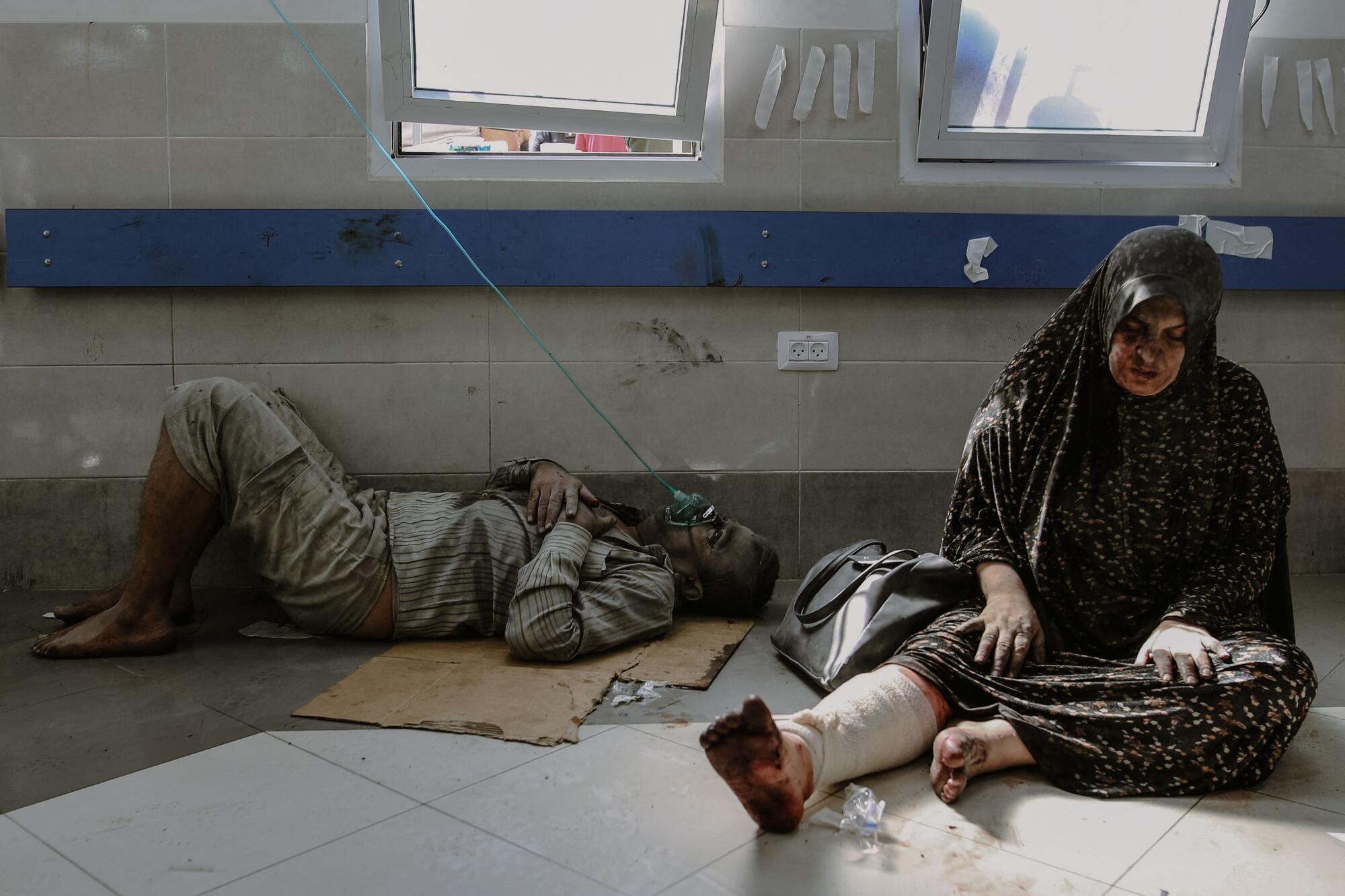
“Each day of this war we’re consuming over a month’s supply of equipment,” he said. “And add to that the fact that staff are exhausted. Some have lost families. Some have lost their homes. Some are staying in someone else’s house.”
He too was exhausted by the sheer number of casualties coming in.
“But then you get the next patient on the table and the adrenaline kicks in,” he said.
Hammam Alloh, a 36-year-old kidney specialist working at Shifa and the Aqsa Martyrs Hospital, said doctors are trying to push through despite the danger and deprivation.
“The houses are insecure. The hospitals are insecure. What are we supposed to do?” he said. “Anyway, these people need help. We can’t let this affect us.”
With supplies dwindling and the infrastructure destroyed, he said, the hospitals could barely provide lifesaving care.
“I’m telling you we’ve been set back 100 years. It was already bad before this war. Now, simple laboratory tests, what modern medicine considers basic, those are luxuries.”
The situation had forced him into a series of terrible decisions over who would live or die. A few days ago, he said, he had to choose between two patients who needed dialysis, one of them a 90-year-old woman.
“I gave her a little time with it, but I had to give priority to the younger person,” he said. “I’m devastated that I have to do this, but I have to use the resources we have in the best way.”
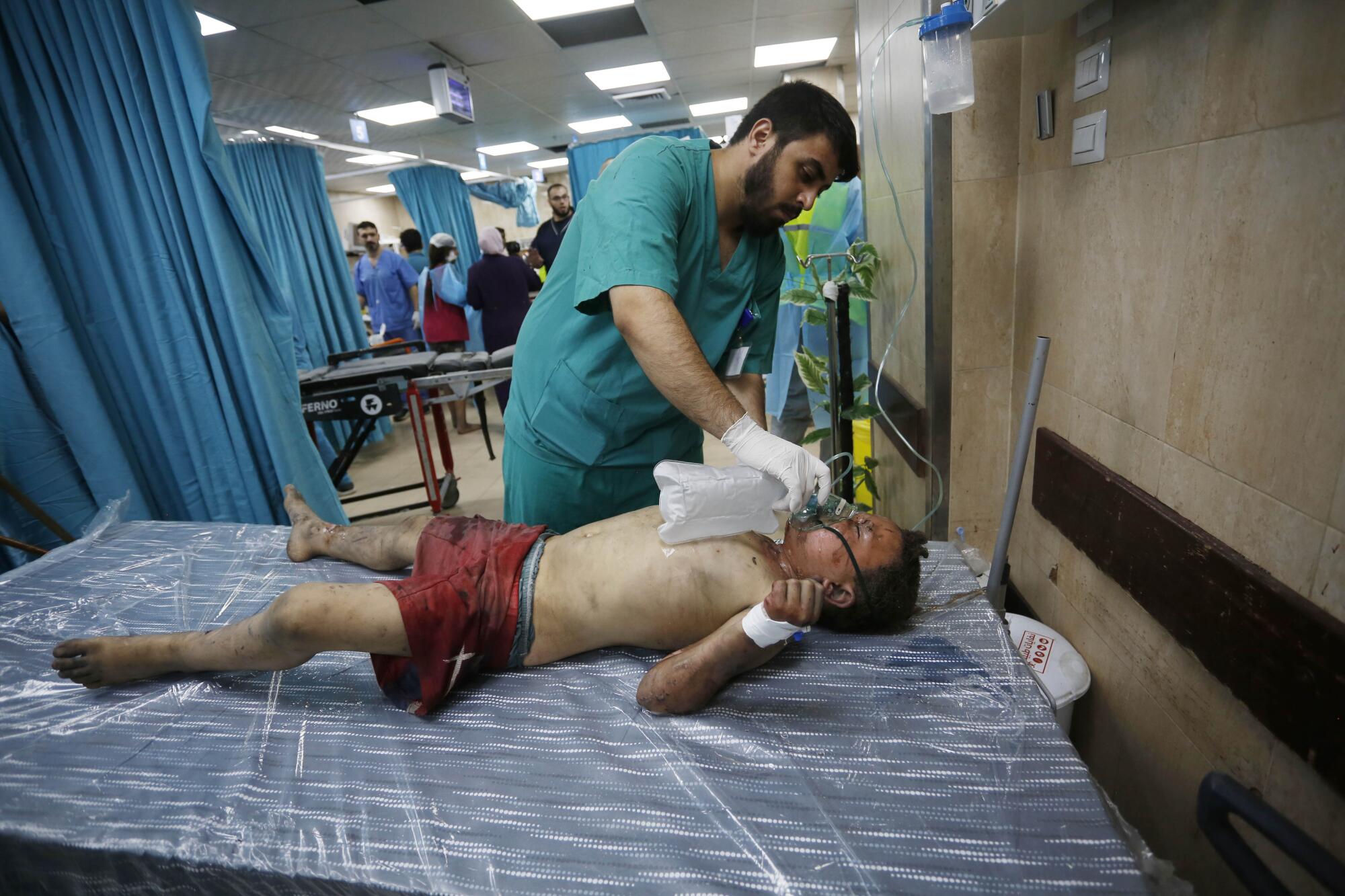
Equally dire is the situation outside the hospitals for medical crews, authorities in Gaza say. Since Israel’s retaliatory campaign began, 44 medical personnel have been killed and 70 others injured, along with 23 ambulances completely out of commission, authorities say.
“The strange thing is that the ambulances get hit multiple times in the same attack,” said Iyad Zaqout, who heads the emergency services’ council in Gaza. “It feels deliberate.”
Tarazi, the director at Ahli, was hoping the hospital could be made operational again, but she was facing a facility that had been all but gutted by the blast.
“Phones. Water. Glass on the windows, all that’s gone,” she said. “Thank God the buildings are still standing, but there is also a lot of damage we need to fix.” She insisted the hospital’s 17 doctors would be serving patients soon at the Anglican charity facility.
“The message of the church is to serve all the people in need,” she said. “This is the principle we’re following.”
Times staff writer Nabih Bulos reported from Jerusalem. A special correspondent reported from Gaza; The Times is not using the reporter’s name for security reasons.
More to Read
Sign up for Essential California
The most important California stories and recommendations in your inbox every morning.
You may occasionally receive promotional content from the Los Angeles Times.













